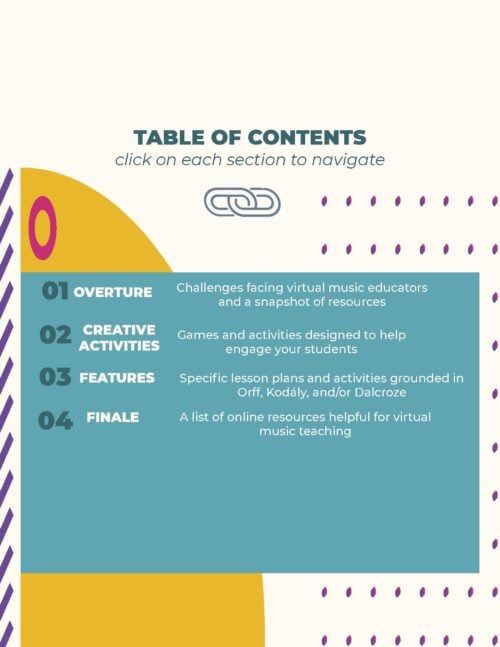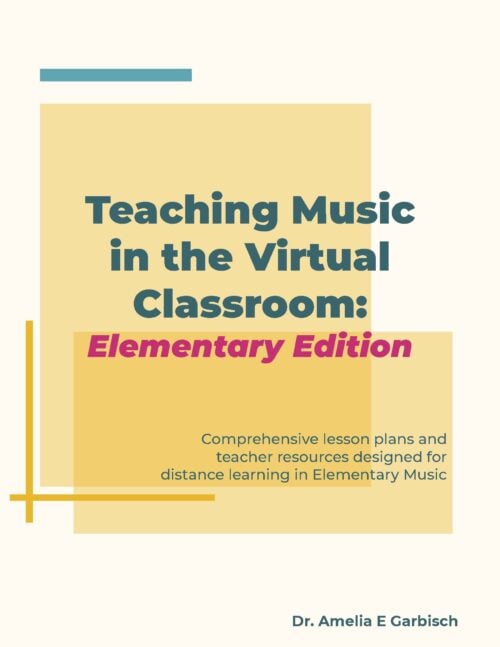-
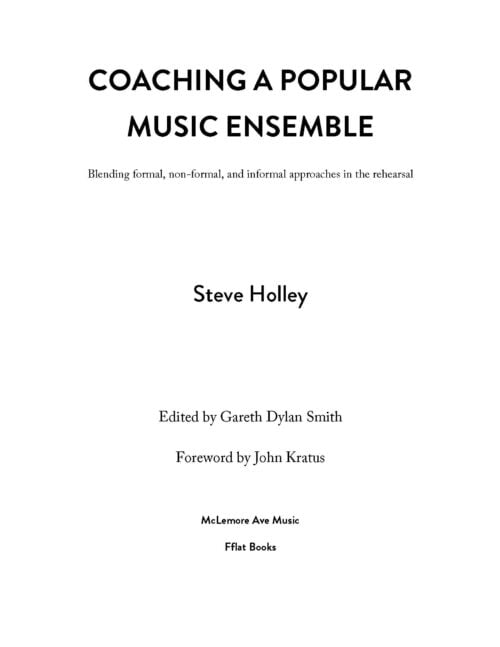
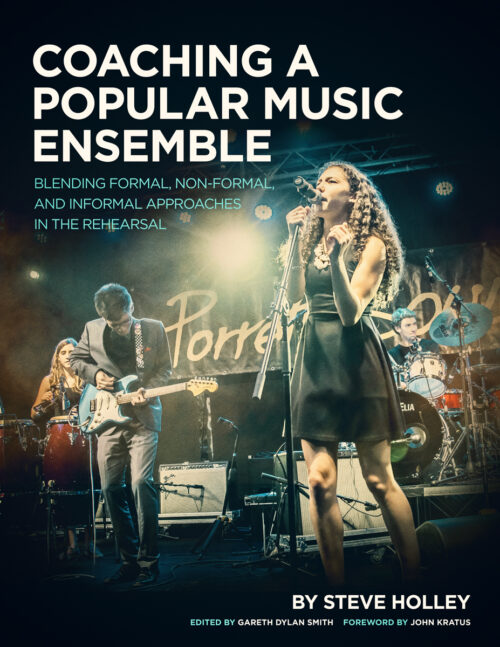
by Steve Holley
(150 pages) This is an eBook for digital download. Coaching a Popular Music Ensemble is a comprehensive guide for the music teacher striving to meet the changing needs of their students, the university music educator examining our current music education paradigm, and the band director trying to expand their school’s music program. Using his broad experiences as an educator and Memphis musician, Holley details the philosophy and approaches he developed to create a culturally responsive, learner-driven popular music program. -
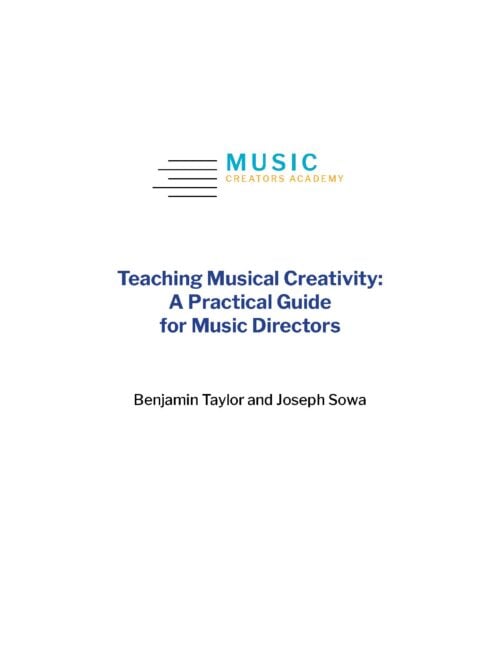
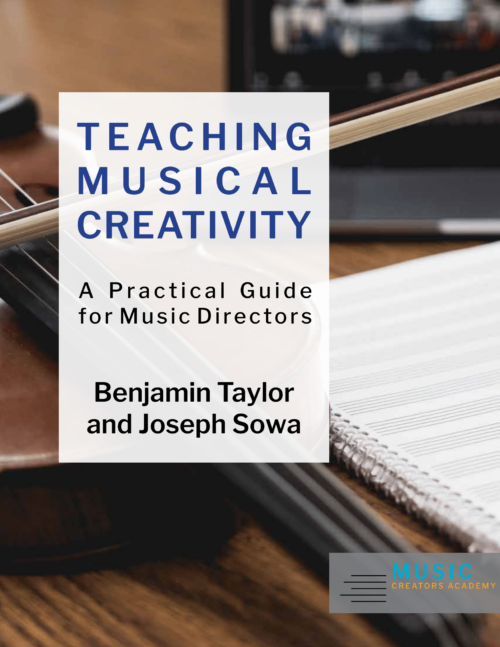
by Benjamin Taylor and Joseph Sowa
(23 pages) This is an eBook for digital download. Creativity and collaboration in the classroom is easier and more fun than you might think. The creative exercises and improvisational games collected in Teaching Music Creativity were designed to help students of all abilities feel comfortable in improvising and creating new music. They have been road tested by the Music Creators Academy and are now being used as a resource by band, choir, and orchestra directors with great success. -
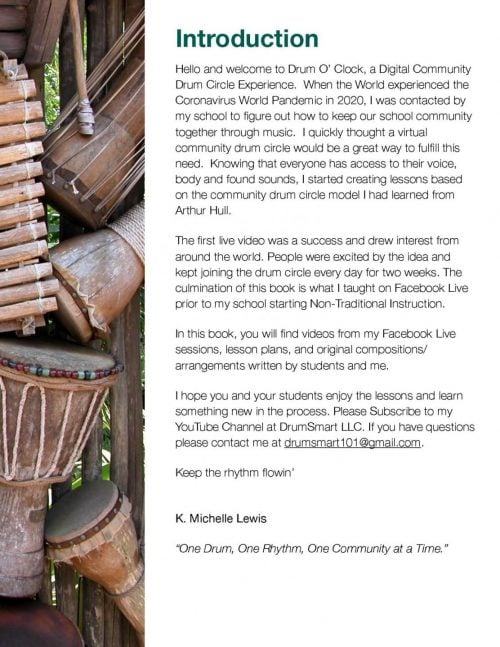
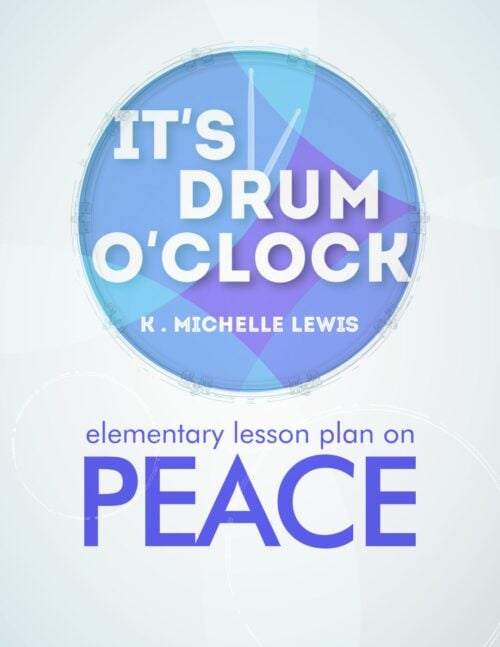
by Yeshima
This is a PDF for digital download. The purpose of this lesson plan is to present a well-rounded approach to music that engages the learner from multiple perspectives using accessible instruments found around the home, as well as the voice and body percussion. The pedagogy originated from a collection of philosophies found in Orff Schulwerk, Social and Emotional Learning, Community Drum Circles, and Mindfulness. These lessons can be modified for homeschool populations, Non-Traditional Instruction, General Music Classes, and/or community-building events. This PDF includes links to YouTube videos, plans, and materials for a lesson plan centered on Peace! -
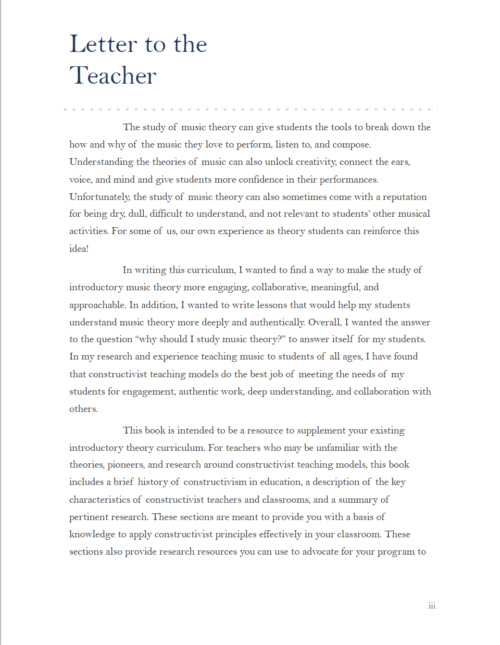
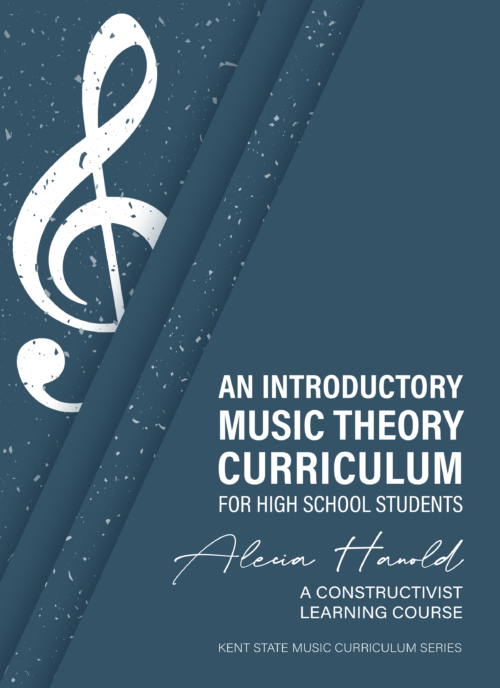
by Alecia Hanold
(189 pages) This is an eBook for digital download. An Introductory Music Theory Curriculum provides a way for teachers to make the study of introductory music theory more engaging, collaborative, meaningful, and approachable for high-school level musicians. This book includes an overview of constructivism and constructivist pedagogy as well as full, detailed lesson plans for ten units of study in beginning music theory. This is the first publication in the Kent State Curriculum Series. -
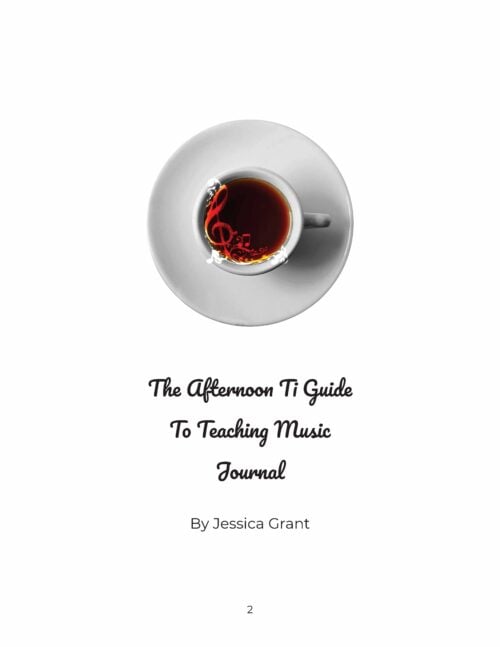
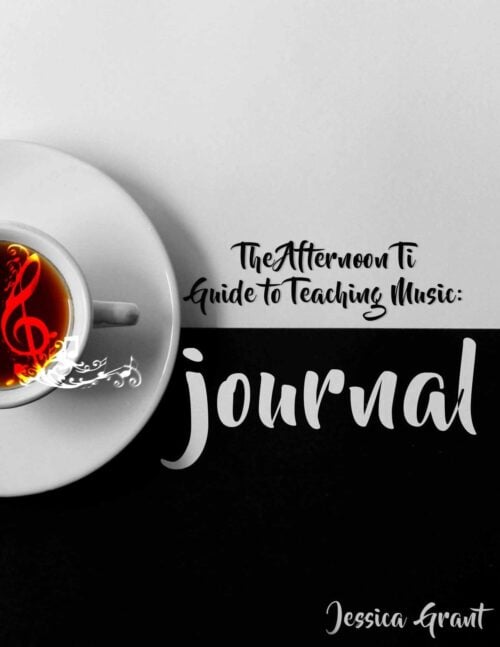
by Jessica Grant
(110 pages) This is an eBook for digital download. Use the code "tifortwo" at checkout and receive $5 off this journal when purchased with the accompanying Afternoon Ti Book. The Afternoon Ti Guide for Teaching Music Journal allows you to take your music education experience one step further as you apply what you learn in the book The Afternoon Ti Guide for Teaching Music. You'll spend time reflecting through journaling, writing personal insights, creating lessons, and looking at the things you love about teaching in a refreshing new light. -
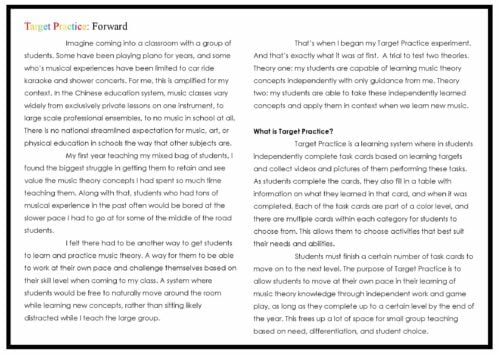
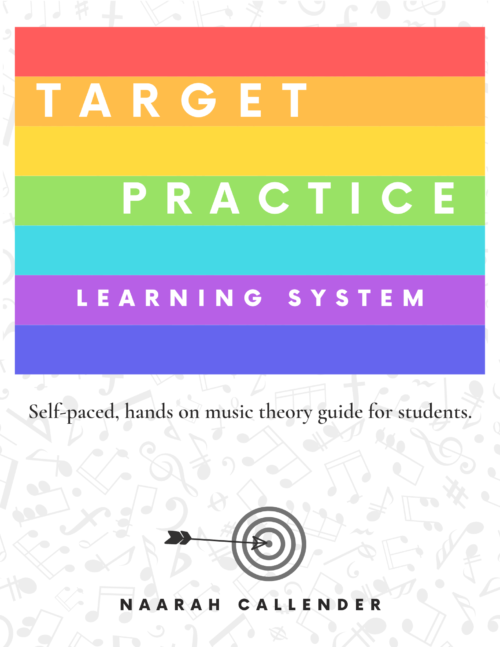
by Naarah Callender
(43-page teacher guide with 100 student cards) This is an e-book for digital download. Purchase includes PDF and PowerPoint files. Target Practice is a completely self-paced and flexible learning system, allowing students to learn and retain music theory concepts in an engaging and organic way through activities, games, and exploration. Students work through learning targets at their own pace to level up and improve their ear-training, sight-reading, rhythmic, and melodic skills. This is perfect for any secondary level course! -
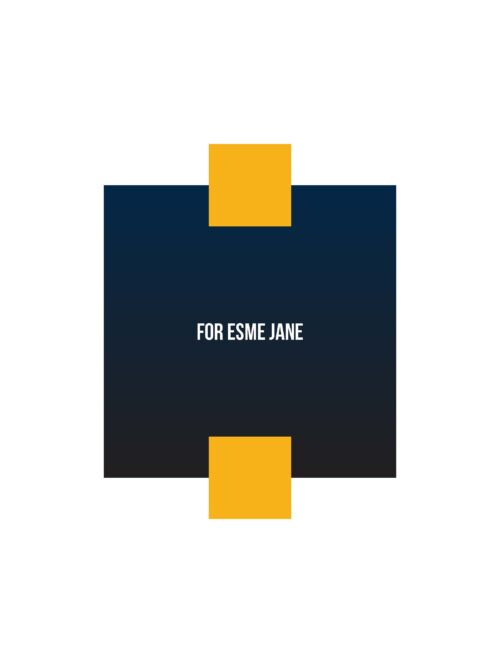
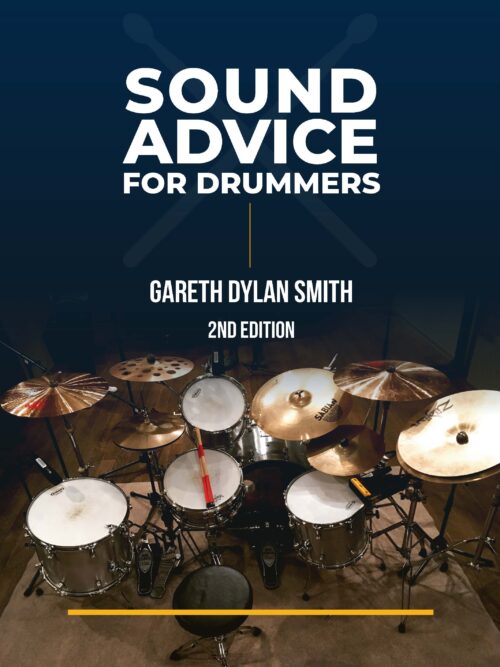
by Gareth Dylan Smith
69 Pages This is an eBook for digital download. This book is aimed at intermediate to more advanced drummers. Written by a seasoned professional drummer and drum educator from London, England, Sound Advice for Drummers provides tips and provocations about practising, performing, rehearsing, recording and creating music from behind the drums. It is an essential read for aspiring professional drummers. -
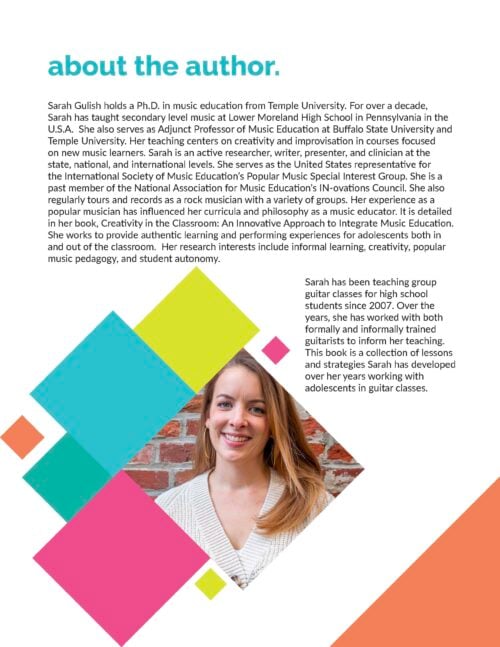
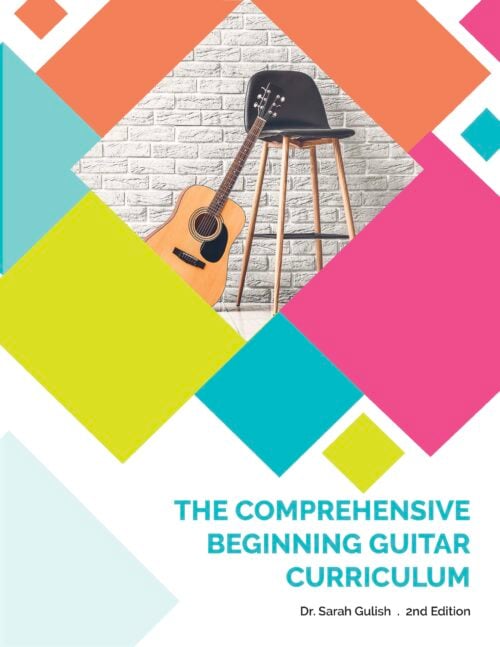
by Sarah Gulish
(37 pages plus video tutorials and handouts) This is an eBook for digital download. The Comprehensive Beginning Guitar Curriculum is a must-read for any music educator tasked with teaching a modern guitar class. This detailed text provides philosophy, unit plans, and resources for the development and execution of a relevant and engaging guitar program. The second edition includes updated visuals and curricular extensions. -
Sale!
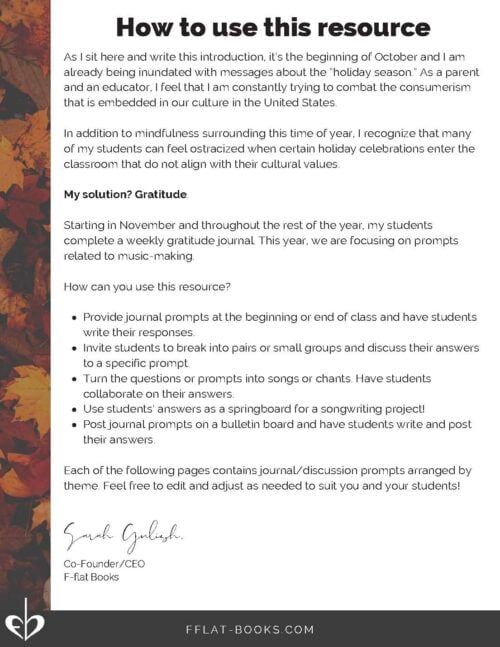
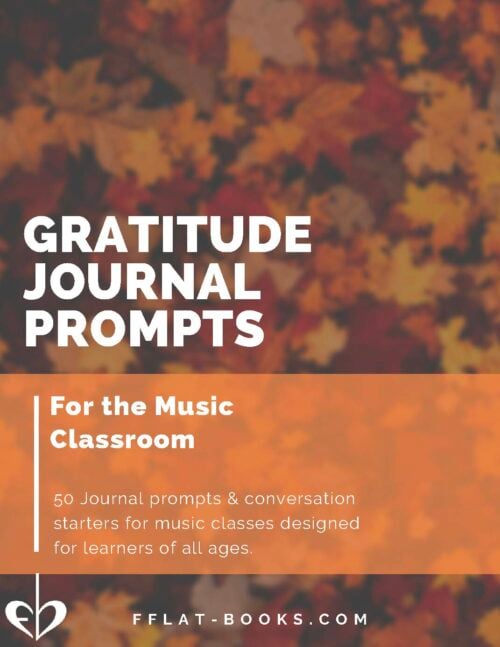
by Sarah Gulish
This is an eBook for digital download. There is growing evidence that a regular gratitude practice will improve well-being and mental health. However, what does it look like to have a regular classroom gratitude practice? This resource contains 50 journal prompts/discussion questions centered on ten themes of gratitude. The questions are general enough to apply to any music classroom at any age level. -
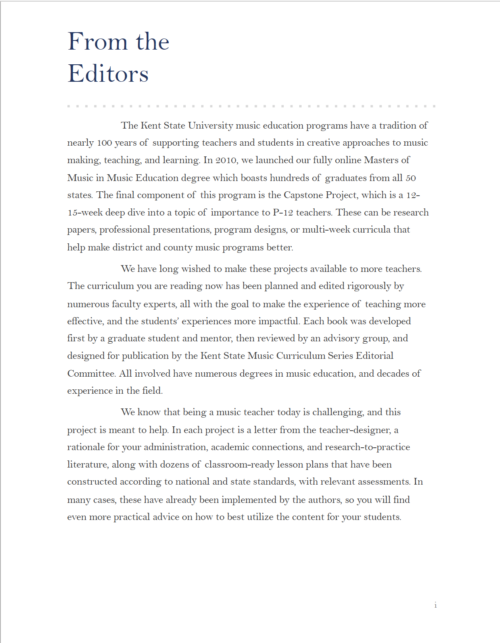

by Chelsea Perrine
(65 pages) This is an eBook for digital download. In this book, you will find research to support a well-rounded and focused education for music students with special needs, templates for goal tracking and lesson planning, and suggestions for lessons and units for your students. This adaptive music curriculum is geared towards secondary-level students. This is the second publication in the Kent State Curriculum Series. -
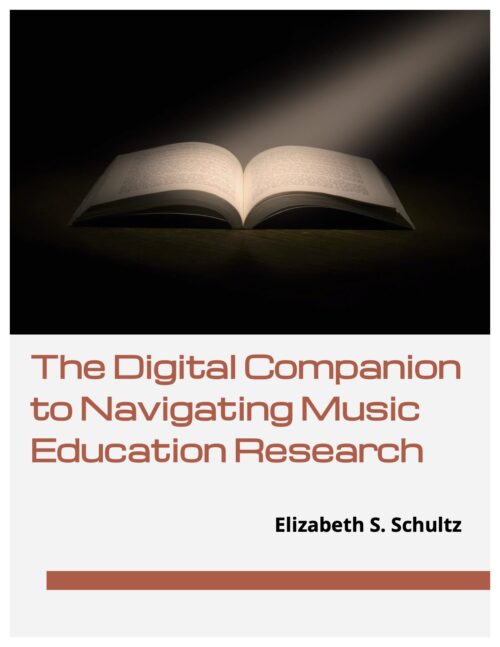 This is an eBook for digital download (82 pages + editable resources) Reading, writing, and conducting research can feel overwhelming. But it can feel especially overwhelming if you’re brand new. This book is the jargon-free field guide, companion, and resource for music education research so that you don’t have to keep emailing your professors.
This is an eBook for digital download (82 pages + editable resources) Reading, writing, and conducting research can feel overwhelming. But it can feel especially overwhelming if you’re brand new. This book is the jargon-free field guide, companion, and resource for music education research so that you don’t have to keep emailing your professors.

